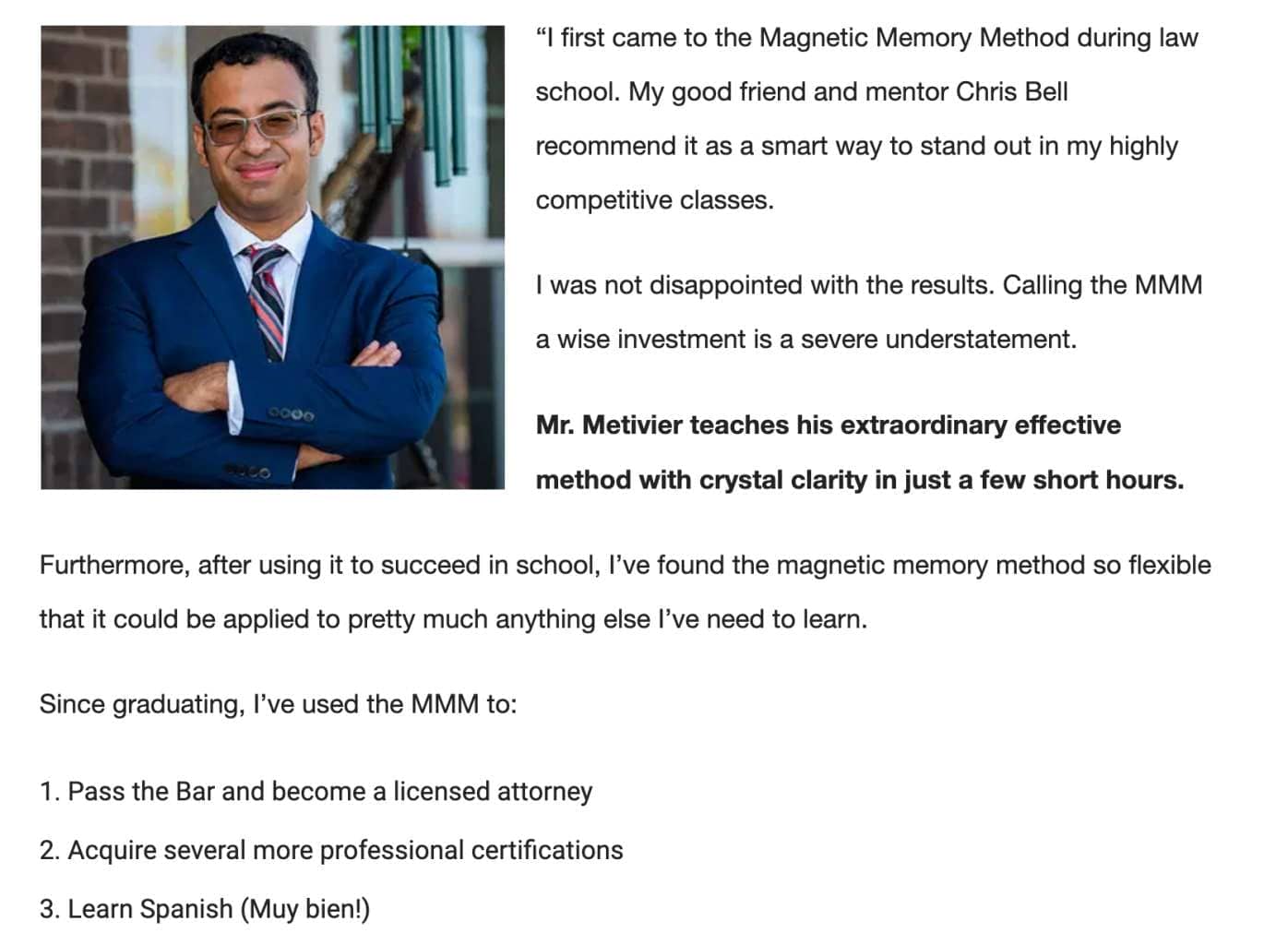 If you’ve been having trouble studying on your own for the LSAT, rest easy.
If you’ve been having trouble studying on your own for the LSAT, rest easy.
On this page, I’m going to turn you into a learning master.
Not only are you about to discover how to start studying for the LSAT so you can pass with flying colors.
I’m going to show you how to self study effectively.
No more distractions.
No more dips in confidence.
And no more forgetting.
So if you’re ready for a masterclass in self-studying your way to success with the LSAT, let’s dive in.
The Best Way To Study for the LSAT On Your Own
Let’s face it. LSAT prep comes packed with a lot of emotions and anxieties.
You invest a ton and the stakes for your future are high.
And you might be sick of the standard advice. No doubt about it, starting early and following a study schedule are good tips.
But the number one way to study on your own involves going a step further than “pushing past your comfort zone” and taking practice tests with the clock on.
You need to add an essential ingredient to the mix.
You need to improve your memory.
Not only will better memory make everything about the LSAT easier. It will prime you for productivity during law school itself.
Even better, you’ll have more free time, like my student David S. Matthew who shared his ability to to learn Spanish while going to law school:
To repeat:
The number one way to make the LSAT easier is to spend a week or two optimizing your memory.
How to Start Studying For the LSAT
The first thing to understand about the Law School Admission Test is that, in addition to mastering your memory, you need to become a logical thinker.
Critical thinking is incredibly important in law, but also in the process of passing exams. It’s one of the reasons people are so terrified of studying law.
Now that you know critical thinking is so important, you don’t have to be.
Let’s dig further.
One: Learn All About Thinking Critically
The good news is that improving how you think isn’t that difficult. You can discover the main thinking types and start practicing them all within a couple of hours.
Working through the basics of thinking critical will exercise your memory. And you can go further by reading critical thinking books for even better results. This is the extra mile you’re guaranteed many other would-be law students won’t go.
Make sure you’re on that mile.
Two: Analyze A Variety Of Cases
There are countless LSAT books that give you countless cases to read through.
It’s a good idea to go through them and take the practice tests.
However, these days you can do a lot better than that. Countless YouTube channels analyze a variety of cases each and every day.
Subscribe to them and get involved in the discussions.
You can also follow forums and essentially get free mentorship by actual legal professionals. It’s like free mentorship.
Three: Fill The Gaps In Your Reading Comprehension Skills
Reading involves a lot of linear thinking. But there are also a lot of abstract aspects to the law.
To improve your reading comprehension, you need a bit of self-analysis. For example, some people need to boost their vocabulary more than any specific reading comprehension strategy.
If that’s the case for you, focus on memorizing vocabulary you don’t know.
Or, if you have decent reading comprehension, you may want to focus on learning to skim more effectively.
At the end of the day, comprehension is linked to your current level of reading skill.
Why is reading so important?
Reading is a solo activity. The more you practice doing it well on your own, the better you’ll fare on the LSAT.
Four: Learn To Relax
Want to know how to get more out of timed LSAT practice tests?
Practice relaxing yourself first.
It sounds weird, but did you know that certain yoga moves improve your memory and concentration? A major reason they help has to do with relaxation.
You can also spend time on concentration meditation exercises each day. Although meditation isn’t for everyone, most of us “get into the zone” easily thanks to consistent relaxation practice. It makes it so much easier to study when you’re on your own.
Five: Visualize Your Study Materials Properly
One of the problems people studying for the LSAT face is that they just read their study materials and complete the exercises.
For best results, you want to visualize the information. You can do this by either diagramming things out or using mind mapping.
Not only is drawing out relationships a great way to encourage understanding. It also helps with active recall, a key component of remembering more.
Although you can use visualization software for mind mapping, memory experts like Lynne Kelly suggested that using your hands is much more effective.
Six: Prepare For The Question Types
Although there may be regional differences, you generally have:
- Reading comprehension questions
- Analytical reasoning questions
- Logical reasoning questions
In each case, you’ll want to practice quickly finding and assessing the main points. All of this circles back to making sure you’re absorbing as much legal analysis as possible. Not just in your textbooks, but from the wealth of legal professionals sharing on the internet today.
How to Self-Study: 5 Tips for Memorization and Focus
When it comes to memory itself, let’s turn to some even more high-powered self-study techniques.
Although many of these techniques are ancient, they’ve all been scientifically validated.
One: Spaced Repetition
The LSAT focuses on critical thinking and your ability to write logically coherent responses.
Part of being able to produce valid answers comes down to using legal terminology correctly. To make sure you can recall these terms, you’ll want to get as many as possible into long-term memory.
Spaced repetition is the key, and to use it effectively you can explore:
You’ll also want to be able to remember the main points while you’re taking the exam. That’s why the next technique is so key.
Two: The Memory Palace
A Memory Palace is a mental recreation of a familiar location. You use it as a kind of “container” for storing associations in the form of mnemonic images.
It will help you memorize long passages like this:
Every very such purchase or settlement, gift or cession, not having the authority aforesaid, is null and void, and that no right or title will accrue in consequence of any such purchase, gift, cession or settlement.
By placing associations along a journey, you’ll be able to recall even the most complicated laws.
To make word-for-word associations, I recommend the pegword method.
Three: Study in Memory-Friendly Locations
Too many people try to squeeze studying in on the go. A certain amount of learning on transit and in noisy locations can help.
But self study for the LSAT requires a lot of sustained focus. Here’s a list of the best places to study.
Four: Write Summaries
To create focus and form memories at the same time, make sure to write summaries of everything you’re learning.
They don’t have to be long. 200-250 words will often do. The important point is to get the information into your own words. Then check what you’ve written against the source material for accuracy.
If there’s a faster study method than exercising your memory through writing, I don’t know what it is.
Five: Make Preemptive Strikes
We don’t often talk about the bad outcomes that could happen. But we should.
That’s because you can avoid problems by taking certain actions in advance. For example, studying for the LSAT and succeeding at the exam will be massively enhanced by:
- Getting memory friendly sleep
- Avoiding foods that harm your brain and create brain fog
- Scheduling lots of exercise
- Remaining social
- Taking time for brain exercise
By keeping all of these activities in balance, you won’t suddenly fall off a cliff if life happens and you wind up missing a night’s sleep.
How To Self Study Effectively
At the end of the day, you’re not an isolated robot.
You need community in order for your mind to flourish.
Speak to as many people as you can about what you’re learning. Get involved in debate clubs and community groups focused on the law.
Sure, you’ll need to manage your time tightly in order to hit the books. But you now know a lot about how to read faster.
And you’ve discovered a lot about how to optimize your memory.
If you’d like more help, get my FREE Memory Improvement Kit:
It will walk you through developing well-formed Memory Palaces quickly.
You’ll also learn more about spaced repetition and logical thinking.
Definitely take steps to sharpen your memory.
That way you’ll have more working memory space for the thinking you need to do.
Because all those top-level legal experts you admire? The reason they can think on their feet isn’t just fancy terms and solid recall of legal precedent.
It’s also the processing power needed to reflect on the best legal strategies. The kind of processing power only optimizing your memory can bring.
Related Posts
- Memory Loss Story And Memory Recovery Tips With Jennie Gorman
Memory loss is frightening. However, the solution may be simpler than you think. Jennie Gorman's…
- How to Study for the LSAT (LSAT Prep From a Memory Expert)
Studying for the LSAT couldn't be simpler with this treasure trove of tips. Enjoy effortless…
- Delayed Gratification Tips For Memory Training With Matt Dobschuetz
If you don't have strategies for delaying gratification, you're robbing from your memory training efforts.…








